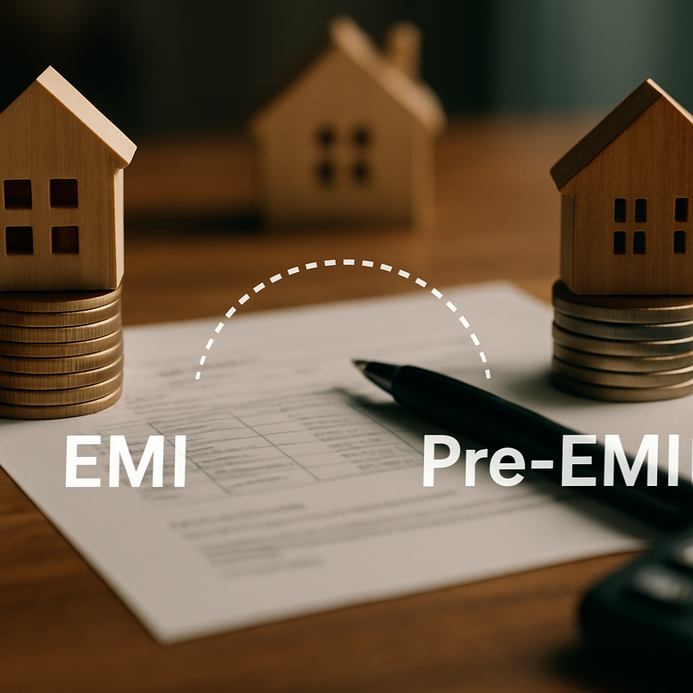Common Pitfalls In Residential Investment And How To Avoid Them
The Landscape of Real Estate Investment
Residential investment is becoming a hot topic for building wealth. There’s a strong demand for rentals and multifamily units, especially with the current housing shortages.
Here’s a quick look at potential returns from various investment types:
| Investment Type | Average Annual Return |
| Residential Real Estate | 9.2% |
| S&P 500 Stocks | 7.8% |
| Bonds | 3.5% |
One cool advantage of residential investments is the lower volatility compared to stocks, plus you can leverage mortgages to magnify your returns. But don’t kid yourself, this road has its bumps. Keeping up with diligent research is critical. You can’t afford to skip out on details or you might end up overpaying or misreading market trends.
And let’s not forget about neighborhood dynamics, they play a huge role. Picking the right location can boost rental demand and occupancy rates. Think about emerging markets like GIFT City; they can offer better returns than oversaturated urban spots.
Plus, knowing local laws and financial aspects, including property taxes and community regulations can save you a headache down the line. Guides, like navigating home loans, can really help you grasp your obligations better.
The real estate scene is cutthroat. Staying informed can be the difference between turning a profit and taking a loss. Watch the trends, stay nimble, and think about factors like new infrastructure that can raise property values.
Unveil the 50-50 payment plan
Pitfall 1: Inadequate Research
Let’s be real, skipping on research? That’s a big mistake. Many investors think they know the market just because they live nearby. But ignoring a thorough analysis can lead to costly blunders.
So, what do you do? First off, you should look at historical property trends in your area. There’s data showing that places with booming developments can really appreciate over time, especially those near major infrastructure projects.
| Key Research Factors | Importance |
| Location Analysis | Significantly affects property values. |
| Historical Data | Helps predict based on past trends. |
| Market Trends | Indicates property types that are hot right now. |
Using online real estate platforms can supercharge your research. They can give you insights into trends between residential and commercial properties, which is vital. The more you know, the better your investments.
It’s also smart to connect with local market experts. They often know things that online data doesn’t cover, like neighborhood quirks or upcoming developments.
Digging into articles that highlight successful strategies, like why real estate is still considered the safest long-term investment, can be eye-opening. Always keep refining your understanding of the market before you bite the bullet on a property.
To sum it up: well-rounded research is crucial for anyone getting into residential investment. Diversifying your sources and connecting with experts will help steer you clear of significant missteps. For more tidbits on navigating the real estate market in Hyderabad, check out our guides on resale insights and rental yield forecasting.
Pitfall 2: Underestimating Costs
One of the trickiest parts about investing in residential properties? Underestimating costs. It’s easy to overlook hidden expenses, but they can pile up fast and really mess with your returns. Let’s break this down a bit.
| Type of Cost | Estimated Cost | Notes |
| Property Taxes | 1% – 2% of home value | Varies by location; often ignored. |
| Maintenance and Repairs | 1% of property value annually | Crucial for property upkeep. |
| Homeowner Association Fees | $200 – $500 per month | Common in gated communities; can go up. |
| Utilities | $100 – $300 per month | Varies with property size and usage. |
To protect your investments, draft a budget that accounts for these unexpected costs. Seasoned investors tend to advise setting aside 15% to 20% of expected rental income for those surprises. This way, you’re not just treading water, you’re ensuring your property is a winning asset.
Managing ongoing expenses properly? That’s key for success in residential investment. Don’t underestimate these details, they’ll shape your overall profitability.
Pitfall 3: Poor Tenant Management
Tenant management is vital for squeezing the most profit out of residential investments. If you neglect tenant relations? Hello, high vacancy rates. Here’s how to keep things running smoothly.
Understanding Tenant Needs
Tenants are way more likely to renew their leases if you actually listen to them. Addressing their concerns quickly can make a world of difference. Data suggests that well-managed properties can reach renewal rates of up to 90%.
Implementing Regular Communication
Keeping the lines open is huge. Routine checks and communication not only keep tenants in the loop but also build a community feel. This leads to longer rental terms and lower turnover.
Establishing Robust Screening Processes
Before anyone moves in, effective screening is a must. Check backgrounds, review credit histories, and ask for references to find reliable tenants. Properties with lower turnover generally perform better from an investment angle.
| Tenant Management Strategy | Benefits | Statistics |
| Clear Communication | Improved tenant satisfaction | 90% renewal rates |
| Regular Inspections | Catch issues early | 40% turnover reduction |
| Rigorous Screening | Increased reliability | 30% fewer evictions |
Tech can give your tenant management a boost, too. Automating rent collection and maintenance requests can improve efficiency and tenant happiness.
Internal Resources for Further Reading
If you’re looking to dig deeper into tenant management or rental yields, consider checking these out:
– Effective Home Loan Resale Strategies
– Financial Strategies for Investing in Indian Real Estate
– Tips on Proper Tenant Communication
By focusing on tenant relations and effective management strategies, you can boost tenant satisfaction and keep those vacancy rates low, making your residential investments far more profitable.
Conclusion: Strategies for Success in Residential Investment
Navigating the world of residential investment can feel a bit daunting, but knowing the right strategies can make all the difference. Here are some essential takeaways to keep in mind, whether you’re new to the game or already a pro:
1. Research the Market: Stay on top of trends and locations that are on the rise. Keep an eye on demographics, economic indicators, and city developments that might influence property values. A solid grasp of your local market will help you make smarter moves.
2. Start with a Clear Plan: Define what you want, are you looking for rental income, flipping houses, or long-term growth? Having a focused strategy is your roadmap.
3. Build a Solid Team: Find pros – real estate agents, property managers, legal advisors. Their experience can help steer you clear of pitfalls you might not see coming.
4. Budget Wisely: Factor in all the potential costs, not just buying the property. Having a detailed budget can stop you from overspending and keep your investment on track.
5. Stay Compliant with Regulations: Get familiar with the laws in your area regarding residential properties. Compliance isn’t just a good idea, it protects your investment.
With the right preparation and knowledge, investing in residential properties can be a rewarding venture. For more insights, check out resources on navigating the Indian real estate market.
FAQ
Q: What should I consider before investing in residential real estate?
A: Consider location, budget, property condition, market trends, and potential expenses. Performing thorough research is crucial.
Q: How much should I budget for unexpected costs?
A: It’s advisable to set aside 15% to 20% of your expected rental income to account for unexpected costs such as repairs and maintenance.
Q: What are the benefits of proper tenant management?
A: Good tenant management leads to higher tenant satisfaction, lower vacancy rates, and increased revenue from renewals.
Q: How can I stay informed about local market trends?
A: Use online real estate platforms, connect with local experts, and subscribe to market analysis reports to keep updated.
Q: Why is diversification of investment sources important?
A: Diversifying your sources provides a more comprehensive view of the market and helps you make informed decisions, reducing the risk of costly mistakes.













